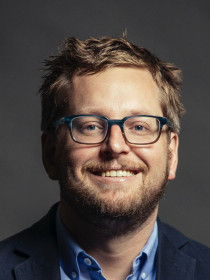
Wesley Longhofer
Assistant Professor of Organization and Management, Emory University
Chapter Member: Georgia SSN
Areas of Expertise:
Connect with Wesley
About Wesley
Longhofer’s research examines the global and organizational dimensions of philanthropic activity, civic engagement, globalization, and environmental policy reform. He is also the Executive Academic Director of The Roberto C. Goizueta Business & Society Institute. His research includes a global study of philanthropic foundations, a comparative analysis of participation in charitable organizations, a collaborative study on the organizational dynamics of climate change, and a number of papers on child rights, international aid, and environmental policies.
Contributions
Publications
"When Do Laws Matters? National Minimum-Age-of-Marriage Laws, Child Rights, and Adolescent Fertility, 1989-2007" (with ). Law & Society Review (forthcoming).
Shows that national laws strictly adhering to global standards regarding the minimum age to marry significantly reduce births among teenagers.
"The Structural Sources of Association" (with ). American Journal of Sociology 117, no. 2 (2011): 539-585.
Finds that the tremendous growth in voluntary associations across the globe in recent years can be attributed to structural factors, such as the expansion of the modern state and the activities of international organizations.
"National and Global Origins of Environmental Association" (with ). American Sociological Review 71, no. 4 (2010): 505-533.
Examines the roots of environmental organizing around the globe, finding that international organizations play an important role in encouraging and supporting domestic environmental activity, particularly in the developing world.
"World Society, NGOs, and Environmental Policy Reform in Asia" (with ). International Journal of Comparative Sociology 48, no. 4 (2007): 275-295.
Demonstrates how international institutions were instrumental in the adoption of environmental policies in Asia, oftentimes more so than domestic organizations.